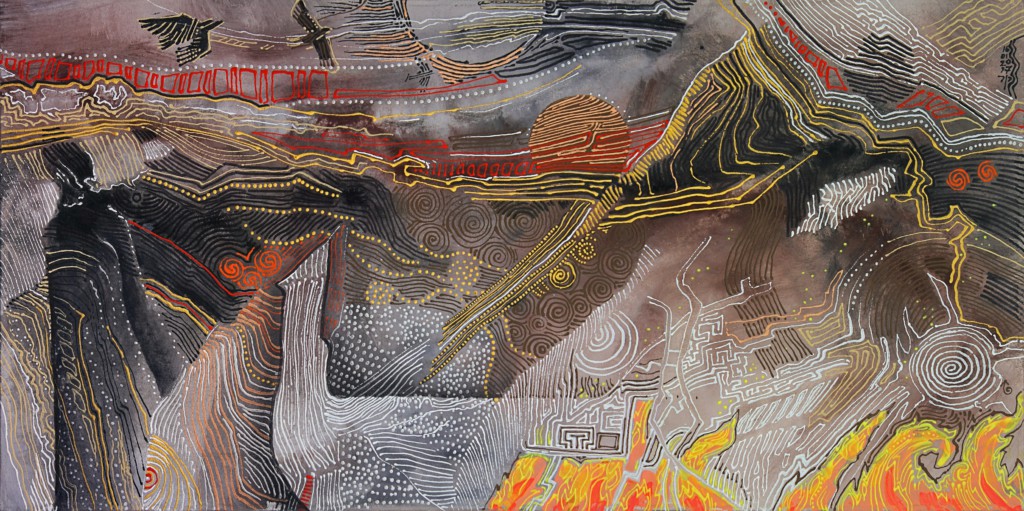Stephen Komarnyckyj explains how his new course: Writing Alternative Poetic Histories will help you write poetry that faces up to this difficult moment in history
I began to think about the role of poetry during what might be a global war during a Skype call with my cousin in 2022. He was in his cellar which served as an improvised bomb shelter, I was in a bucolic German village amidst miles of tranquil forest and fields. He shone his phone around the room to show me how he had prepared to survive. There were jars, bottles of water. I asked him where my aunt was, and he said, she is having a bath. Somehow this was quite funny – she had sealed herself off from the war.
Poetry and war
The present moment is a Golden Age for poetry in Ukraine and, simultaneously, a period when many Ukrainian writers are dying. This period too is seeing mass destruction and suffering in Palestine, an insurrection in Myanmar, the destruction of Syria. Yet, English language poetry does not always seem to be facing this world unflinchingly. In many respects this is only right, those affected directly by these conflicts should be the first to speak of them. Yet, whether we like it or not, we are all connected and the war, which is spreading and which will one day end in a difficult peace, will touch us all.
How poetry has been used to deal with the malaise of previous wars
Our poetry can, and must, help people see this world clearly and guide us through this time. We cannot appropriate the experience of someone in a dug out in Ukraine or in Gaza or Aleppo or Myanmar. But we can look at the world around us behind the lines, we can look to how poetry has historically tackled history. One of the strategies used by English language poets is the creation of an alternative history. This can, like Shakespeare’s Hamlet, draw on a record of a ‘true’ history that allows them to explore their time, and what it means to be human. It could be a fabrication such as the poem Anabase (1924)by Nobel Laureate Saint-John Perse, a work translated into English by T.S. Eliot, which consists of a fragmentary account of ancient imaginary migrations, echoing real histories. Or indeed it would be a poem like Eliot’s The Waste Land (1922) a collage of different voices and images capturing the malaise after WW1.
‘Poetry can shine a tiny light in this very dark time’
This is a far from exhaustive list. But why look at these poems now? English poetry and indeed much of the English speaking world has yet to look this moment square in the eye. I read a lot of engaging and exciting poetry which captures private moments or stories, or beautifully reinvents the ways we use language. But part of me wishes Heaney were alive now, digging with his pen for remnants of the past that might speak to this present. Part of me too wants to see a poetry that does not feel as if it were absent from much of the world. T.S. Eliot might have been writing far from Ypres or the Somme but his evocation of the dead flowing over London Bridge conveyed how the war touched the lives of everyone then. We can learn from these past writers and while I would not want us to write a pastiche of Eliot, we can create our own imaginary histories that convey this moment to others. Poetry can shine a tiny light in this very dark time. This course will help you learn from the past to write your own poetry in a way that can embrace this very challenging present.
Steve Komarnyckyj is teaching the course: Writing Alternative Poetic Histories; Remake history and poetic traditions to imbue a chaotic present with meaning. 5 fortnightly sessions over 10 weeks. No live chats. Suitable for UK & International students. Starts 15 May 2024

Add your Reply
You must be logged in to post a comment.